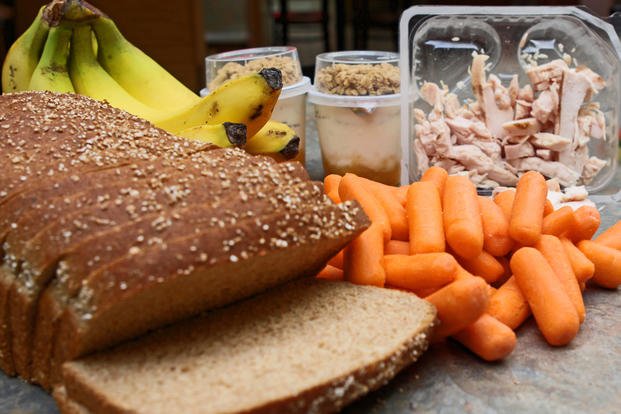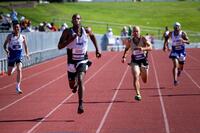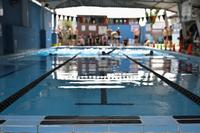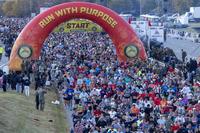It is no secret that nutrition and sleep are the two most important tools to perform optimally and recover from daily stressors. Experiencing optimal performance is definitely a "flow state" when everything is working in unison (training, recovery, energy levels, athletic skills, etc.) to see the mind and body working at their best. The opposite can occur if any of these elements are not in sync with your demands in performance.
In the athletic world, many sports require a lighter frame and competitive weight, such as wrestling, powerlifting, cross country running and lightweight rowing, to name a few. Some of these even require weigh-ins to compete. In the military, poor eating choices abound, mixed with often high-energy demands.
Add the issue of meeting height/weight standards for military weigh-ins, and you have the same scenario as many of these same weight-restrictive athletes. This is where the balance can get lost, creating a relative energy deficiency in sports (RED-S).
According to a recent study on male and female athletes, RED-S results from low-energy diets (intentional or unintentional) and/or excessive exercise. Whether it is athletes running on low-calorie diets or they're dehydrated or simply malnourished, many of the military failures and injuries occur from similar energy deficiencies.
As a coach, one of my major pieces of advice when military members are about to endure a multi-hour/multi-day selection program is to ensure you eat, drink and add electrolytes as often as possible. Failure to perform, heat casualties and low blood sugar are exhibited within hours of many challenging training days and can end the chances of success with even the best-prepared athletes. These can be avoided by adding healthy food options and water before, during and after each training day.
In the short term, the lack of proper nutrition and timing of consuming carbs, fats, proteins and water/electrolytes can be seen with the same symptoms as overtraining/under-recovery. Signs of overstressing, overtraining or outworking your food intake include:
- Washed-out feeling, tired, drained, lack of energy
- Pain in muscles and joints
- Sudden drop in physical and mental performance
- Insomnia
- Headaches/high blood pressure
- Increased number of colds and sore throats
- Decrease in training capacity and intensity
- Moodiness and irritability and/or depression
- Increased resting heart rate
Finding ways to de-stress and focus on optimal recovery will help you create healthier eating, sleeping and training options. If you do this, optimal performance is not far behind.
When allowed to go unchecked, RED-S can be devastating to your long-term health. According to Boston Children's Hospital, if left untreated, long-term damage can be seen in the following systems:
- Reproductive health: Disrupted menstruation (missed or abnormal periods) in women and low libido in men
- Bone health: Increased risk of stress fractures and early onset osteoporosis
- Immunity: More infections and colds due to decreased immunity
- Metabolism: The body converts food into energy more slowly
- Cardiovascular (heart) health: Low heart rate causing dizziness and the potential for long-term heart damage
- Psychological health: Moodiness, depression and anxiety
Here is a combination of healthy behaviors in greater detail to get you back on track and avoid the situations above:
Nutrition
Eat protein-rich foods like meat, nuts, eggs, and beans; the amino acids will help you metabolize the catabolic effects of stress. Just as a protein shake or meal after a hard workout helps you recover, extra protein does the same for stressful days.
Also, add fruits and vegetables rich in antioxidants to help aid recovery and deal with the formation of cell-destroying free radicals developed from stress. Add more Omega 3 fatty acids in fish, nuts, oils or pill form. These have natural, inflammation-reducing benefits that will help you battle stress as well.
Hydration
Stay hydrated with water and make sure your electrolytes are balanced, especially if you are in arid environments or sweat profusely during the day. Whether it's maintaining normal bodily functions and body heat, performing at a high activity level, enduring hot, humid and arid environments, or getting over illness, the composition of water, salts and sugars in your body is critical to your success in athletic endeavors and long days of physical activity.
Sleep
The No. 1 recovery tool is sleep. If you miss out on sleeping 6-8 hours each day, it does not matter how perfect your diet, exercise program and home/work-life balance are. You still can see the chronic side of stress very quickly. So get some sleep by learning how to set the mood for sleeping.
The answer to improving your energy imbalance is to look at both sides of the calorie in vs. calorie out equation. How much and the quality of food you eat matters, especially if you have a sport or military job that requires many hours of physical training or labor each day. The quickest way to fail in sport or a long day's work is not to hydrate.
When you are in hot, humid (or arid) environments without water or electrolytes for a few hours, you are no longer capable of performance and could even become a heat casualty. Your reset button is sleep. For all things stress-related in a day, a good night's sleep will help you metabolize stress and be ready to perform again tomorrow.
Stew Smith is a former Navy SEAL and fitness author certified as a Strength and Conditioning Specialist (CSCS) with the National Strength and Conditioning Association. Visit his Fitness eBook store if you're looking to start a workout program to create a healthy lifestyle. Send your fitness questions to stew@stewsmith.com.
Want to Learn More About Military Life?
Whether you're thinking of joining the military, looking for fitness and basic training tips, or keeping up with military life and benefits, Military.com has you covered. Subscribe to Military.com to have military news, updates and resources delivered directly to your inbox.


















